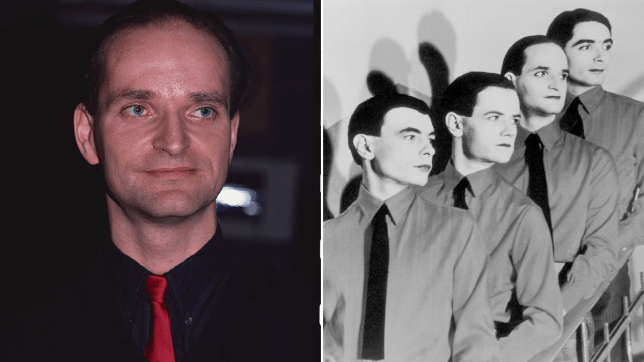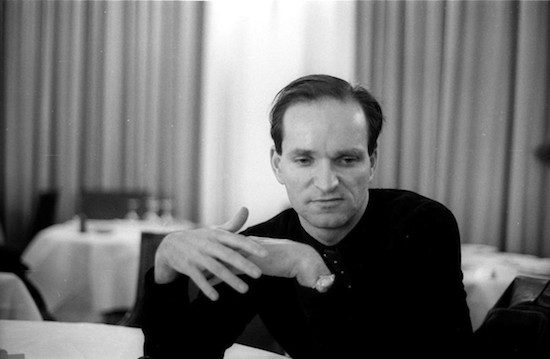
Florian Schneider-Esleben (known as Florian Schneider) (April 7, 1947 – May 6, 2020) was a German musician best known as one of the founding members of the legendary electronic band Kraftwerk and performed with them until November 2008.
Florian Schneider-Esleben was born in the French occupation zone in southern Germany, in what would, in 1952, become the state of Baden-Württemberg. His family then moved to Düsseldorf, Germany when he was 3 years old.
Florian Schneider played in the group Pissoff from 1967 to 1968 with future Kraftwerk band member Eberhard Kranemann. From 1968 to 1969, Florian Schneider played flute, with future Kraftwerk co-founder Ralf Hütter on Hammond organ, Eberhard Kranemann on bass and Jazz drummer Paul Lovens on drums.
Florian Schneider-Esleben then founded Kraftwerk with Ralf Hütter in 1970. The group began as part of West Germany’s experimental scene of the early 1970s, known as “krautrock”, before fully embracing electronic instrumentation, including synthesizers, drum machines, and vocoders.

On commercially successful albums including “Autobahn” (1974), “Trans-Europe Express” (1977), and “The Man-Machine” (1978), Kraftwerk developed what became known as “robot pop” style that combined electronic music with pop melodies, very sparse arrangements, and repetitive rhythms, while adopting a stylized image including matching suits.
Originally, Florian Schneider ‘s main instrument was the flute, which he would treat using electronic effects, including tape echo, ring modulation, pitch-to-voltage converters, fuzz and wah-wah, allowing him to use his flute as a bass instrument. He also played violin (which he treated with similar effects), electric guitar (including slide guitar), and made some use of synthesizers as a melodic instrument and also as a sound processor. Later, he also created his own electronic flute type instrument.
Although Florian Schneider very seldom gave permission to be interviewed, he was known for his comical, enigmatic interviews.
Speaking in 1991 Florian Schneider said: “I had studied seriously up to a certain level, then I found it boring; I looked for other things, I found that the flute was too limiting… Soon I bought a microphone, then loudspeakers, then an echo, then a synthesizer. Much later I threw the flute away; it was a sort of process.”
Florian Schneider’s approach was mainly concerned with sound design and vocoding/speech-synthesis.
Ralf Hütter called Schneider a “sound fetishist” and said “He is a sound perfectionist, so, if the sound isn’t up to a certain standard, he doesn’t want to do it. With electronic music there’s no necessity ever to leave the studio. You could keep making records and sending them out. Why put so much energy into travel, spending time in airports, in waiting halls, in backstage areas, being like an animal, just for two hours of a concert? But now, with the Kling Klang studio on tour with us, we work in the afternoon, we do soundchecks, we compose, we put down new ideas and computer graphics. There’s always so much to do, and we do make progress.”
Florian Schneider did not perform on any of the gigs on the Kraftwerk 2008 world tour, with his last performance with them being in Spain in November 2006. His position onstage was subsequently filled by Stefan Pfaffe, who had been working for the band as a video technician. According to someone close to the group, Schneider officially left Kraftwerk in November 2008.
Kraftwerk are widely considered as both pioneers and innovators of electronic music and were among the first successful acts to popularize the genre. Their work has influenced a very wide range of artists and many genres of modern music, including synthpop, hip hop, post-punk, techno, ambient, and club music, and in 2014, Kraftwerk were awarded a Grammy Lifetime Achievement Award.
David Bowie was heavily influenced by Kraftwerk’s sound during his “Berlin period” in the late 1970s and even titled his instrumental track “V-2 Schneider” on the “Heroes” album after Schneider.
Florian Schneider-Esleben died on May 6, 2020, from cancer, aged 73.
.

